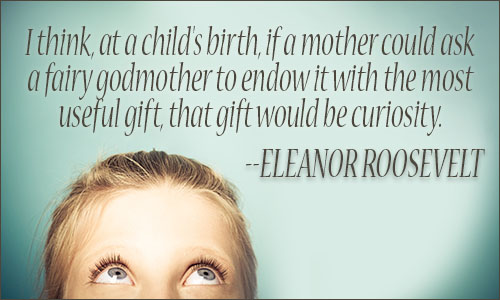Cultivating Curiosity
- On 04-04-2017
Is your school’s culture one in which curiosity and learning from mistakes thrives?
 This article is Part III of the Transforming the School Narrative series. In Part I we explored the default narrative we found across a range of schools in conversations we had with teachers and leaders. Hattie in recent times has been pointing to this too and suggested a reboot of schools. We suggested that the reboot could begin with transforming the narrative for leadership within a school.
This article is Part III of the Transforming the School Narrative series. In Part I we explored the default narrative we found across a range of schools in conversations we had with teachers and leaders. Hattie in recent times has been pointing to this too and suggested a reboot of schools. We suggested that the reboot could begin with transforming the narrative for leadership within a school.
In Part II we looked at aspects of Daniel Goleman’s around Emotional and Social Intelligence. The intent was for look deeper into what would leadership teams need to explore and manage to create a narrative within the school that empowers learning and leadership. Goleman pointed to the importance of various leadership styles inherent to creating an environment for optimal performance for teachers and students.
In this article we will explore the question – how does student curiosity influence learning and school structures within a school?
Curiosity
“Curiosity has been hailed as the major impetus behind cognitive development, education, and scientific discovery (Loewenstein, 1994). It is the drive that brings learners to knowledge. Curiosity is about being aware and open, checking things out, experimenting, and interacting within one’s surroundings. In a classroom grounded in curiosity, teachers have the unique opportunity of being able to mine students’ deepest held wonder, making their attention natural and effortless, and allowing them to fully engage. Creating the conditions for curiosity in the classroom will allow us to achieve more authentic motivation from both teachers and students, leading to deeper learning.”
Wendy L. Ostroff
Wendy Ostroff in her recent ASCD book, Cultivating Curiosity in K-12 Classrooms, suggested that curiosity may be critical to student (and teacher) success in school. In her introduction she pointed to research that showed:
- Curiosity jump-starts and sustains intrinsic motivation, allowing deep learning to happen with ease
- Curiosity releases dopamine, which not only brings pleasure but also improves observation and memory
- Curious people exhibit enhanced cognitive skills
- Students’ and teachers’ curiosity can be combined to co-create a curiosity classroom.
If curiosity has so many benefits to learning then you would think that it would be part of every school environment – wouldn’t it?
Barriers to encouraging curiosity
We asked this of teachers at a number of primary schools and many indicted that there were many barriers to encouraging and supporting curiosity. We also encouraged them to come up with potential solutions or actions to enable curiosity to thrive in their classrooms.
| Challenges – what gets in the way of curiosity | Potential Solutions and Actions |
|
|
Encouraging a Culture of Curiosity and Learning
It was interesting to see that the teachers addressed not only their own personal pedagogical and planning development but systemic issues including reporting, parental perceptions, timetables and professional learning. Whilst writers and researchers such as Wendy Ostroff and Kath Murdoch address the pedagogical aspects of developing a culture of curiosity and inquiry it is critical for school leaders to resolve the systemic issues in partnership with teachers. If the systemic issues are not addressed then the learning that occurs within a school will never reach its potential. It is only through aligning the school systems, processes and culture to a powerful school vision that would result in learning and leadership for all.
Some Questions for you to think about
- What are the barriers in your school to fostering a climate of curiosity and learning from mistakes?
- In what ways must teachers take risks in order to foster curiosity?
- In what ways can a classroom be structured so that the teachers are curious and learning themselves?
- In what ways the school systems and processes be redesigned so that the a culture of curiosity thrives?



0 Comments